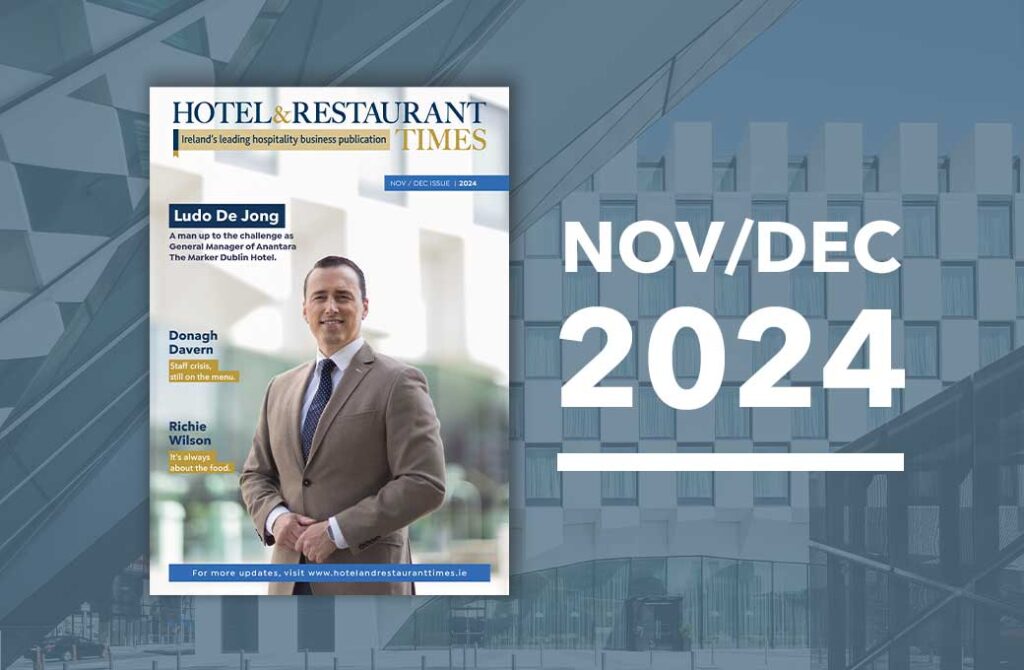
Hoteliers say Government must Urgently Tackle Excessive and Escalating Cost of Insurance
- IHF President says urgent action needed to address spiralling hotel insurance costs which have risen an average of 20% year on year.
- Government must urgently expedite legislative reform on Occupiers Liability Act, radically reform the Personal Injuries Assessment Board, and meaningfully tackle excessive legal fees.
- More competition and coverage in the insurance market options urgently required, with 35% of hotels reporting difficulties renewing insurance.
Cavan, Monday, 28th March 2022 The Government must use every tool at its disposal to urgently address the excessive and escalating costs of insurance for hotels and guesthouses, Elaina Fitzgerald Kane, President of the Irish Hotels Federation (IHF) said today. Speaking at the IHF’s Annual Conference, she highlighted the average increase of 20% in insurance premiums year on year (2022/21 versus 2021/2020), which is placing extreme pressure on a sector seeking to rebuild after an unprecedented two years and also now facing spiralling business costs across energy, utilities and other inputs.
Ms Fitzgerald Kane said insurance costs were one of the most serious challenges facing the sector, with a third of properties (35%) experiencing difficulty in securing insurance cover. She said that while some reform measures have been introduced in recent years, they have not delivered the premium reductions as intended. She called on the Cabinet Committee Sub-Group on Insurance Reform to deliver on its promises of an overhaul of the existing punitive and regressive insurance model. In particular, the IHF is calling for the Government to expedite legislative reform of the Occupiers Liability Act, to overhaul the Personal Injuries Assessment Board (PIAB), and to accelerate the Department of Justice economic review on addressing excessive legal fees.
“While our sector acknowledges the commitment of the Government to address the multiple challenges surrounding insurance premiums and claims that have been apparent over many years, real and tangible reform continues to move at a glacial pace. Excessive premiums are continuing to hurt many businesses, with hotels and guesthouses reporting an average 20% increase in costs year on year. This level of cost escalation is simply not sustainable.
“Fine words and action plans must now deliver outcomes that make a measurable difference to hotels and guesthouses – which are at the heart of a tourism industry employing 260,0000 right across the country. At a minimum, this must include reform of the Occupiers Liability Act so that the Duty of Care is rebalanced in a manner that is fair, practical and proportionate for all parties.
“The Government must also radically overhaul PIAB, which has been undermined by numerous and ongoing legal challenges, to give it the meaningful status it deserves. Reform that tinkers at the edges on PIAB simply will not work, as it has been undermined over many years with numerous and ongoing legal challenges egged on by vested interests.
“Our members – and indeed all businesses – would also urge the Government not to falter on the economic review of options to tackle excessive legal fees being undertaken by the Department of Justice and to mount the strongest possible defence of the recently introduced Judicial Guidelines on personal injuries. Actions that reduce the economic incentives to unnecessarily litigate are good news for everyone – for businesses, customers and the wider society.”
Elaina Fitzgerald Kane also said that more competition was badly needed in the insurance market.
“Notwithstanding the excessively high cost of commercial insurance, we have an ever-shrinking pool of insurers in our market which is making it even more challenging to obtain sufficient cover. As the market continues to contract, an alarming 35% of hotels have reported difficulties renewing their insurance in recent times. The market is clearly not functioning properly and the Government must do everything in its power to promote and attract increased competition and new entrants into the Irish market.”















